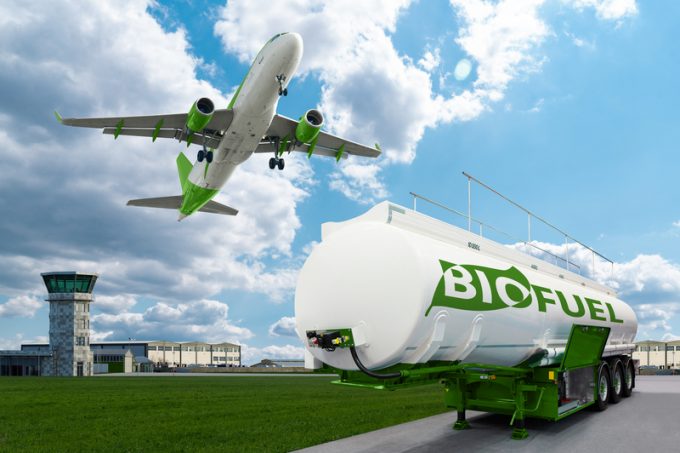NOCC adds third ‘ammonia-ready’ PCTC newbuild orderbook
Norwegian Car Carriers (NOCC) has added a third ‘ammonia-ready’ 7,000ceu LNG-powered ship to its two-vessel, ...
TFII: SOLID AS USUALMAERSK: WEAKENINGF: FALLING OFF A CLIFFAAPL: 'BOTTLENECK IN MAINLAND CHINA'AAPL: CHINA TRENDSDHL: GROWTH CAPEXR: ANOTHER SOLID DELIVERYMFT: HERE COMES THE FALLDSV: LOOK AT SCHENKER PERFORMANCEUPS: A WAVE OF DOWNGRADES DSV: BARGAIN BINKNX: EARNINGS OUTODFL: RISING AND FALLING AND THEN RISING
TFII: SOLID AS USUALMAERSK: WEAKENINGF: FALLING OFF A CLIFFAAPL: 'BOTTLENECK IN MAINLAND CHINA'AAPL: CHINA TRENDSDHL: GROWTH CAPEXR: ANOTHER SOLID DELIVERYMFT: HERE COMES THE FALLDSV: LOOK AT SCHENKER PERFORMANCEUPS: A WAVE OF DOWNGRADES DSV: BARGAIN BINKNX: EARNINGS OUTODFL: RISING AND FALLING AND THEN RISING

The EU has agreed ReFuelEU Aviation, a policy to increase the mix of sustainable aviation fuel (SAF) in aircraft from 2025, while excluding the use of palm oil.
Although member states must agree the proposal before it comes law, ReFuelEU would require aircraft departing from EU airports to carry at least 2% SAF from 2025, rising to 6% from 2030 and 70% by 2050.
The ReFuelEU plan is also seeking to answer the chicken-and-egg question of supply and demand of alternative fuel supplies by stimulating production.
One such fuel is e-kerosine, generated using renewable energy, which has more power-density than biofuel-based alternatives, making it better suited to aviation.
Negotiators agreed to an increased 1.2% synthetic fuel mandate between 2030 and 2031, and 2% between 2032 and 2035.
Transport & Environment welcomed the agreement. Aviation manager Matteo Mirolo told The Loadstar: “The biggest hurdle for e-kerosine production is financing and getting to those final investment decisions.
“This market was waiting for a strong regulatory signal, and now it has one – not only from the proposal and its sub-mandate, but also because parliament managed to triple this mandate [from 0.7%]. The e-kerosine manufacturers are rejoicing, because it will enable them to secure those investments.”
ReFuelEU would also put an end to the practice of ‘tankering’, where aircraft dodge a requirement to refuel with more-expensive SAF by carrying excess fuel.
As well as intentionally stimulating a demand for SAF, ReFuelEU also defines what constitutes ‘sustainable’ biofuel, a definition that excludes food crops and palm oil by-products. Touted as a sustainable biofuel by some, palm oil is manufactured through deforestation of tropical regions in order to grow oil palms. This has led to the assertion by T&E that biofuel based on palm oil is three times as bad for the climate as diesel.
Mr Mirolo added: “Ensuring the success of SAF will require industrial support policies for synthetic kerosene, but also stronger safeguards to ensure that no unsustainable biofuels creep into airplane tanks.”
Listen to this clip of Steve McCrindle, DP World’s port operations director at Southampton, explain the emissions-cutting challenges and opportunities facing terminal operators
Comment on this article